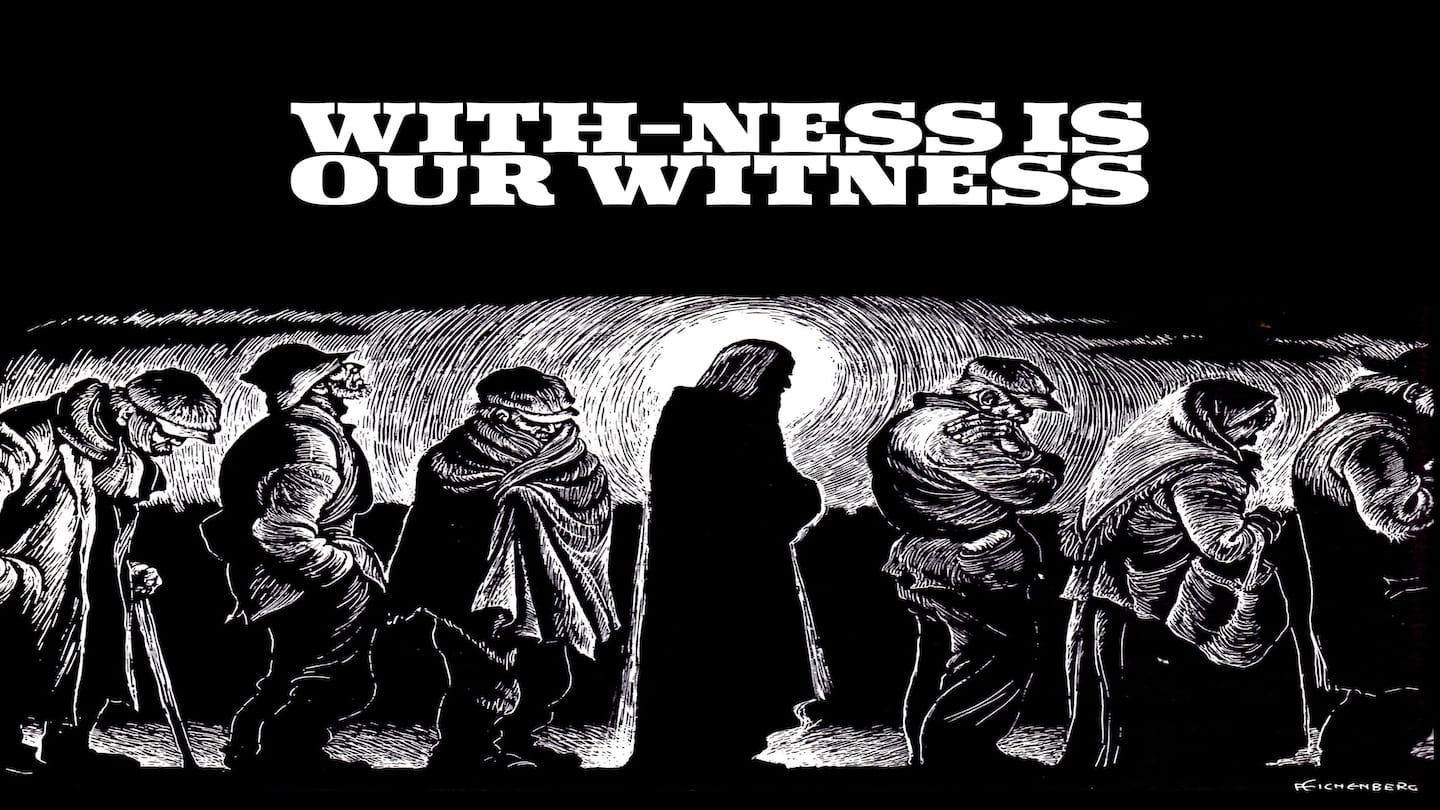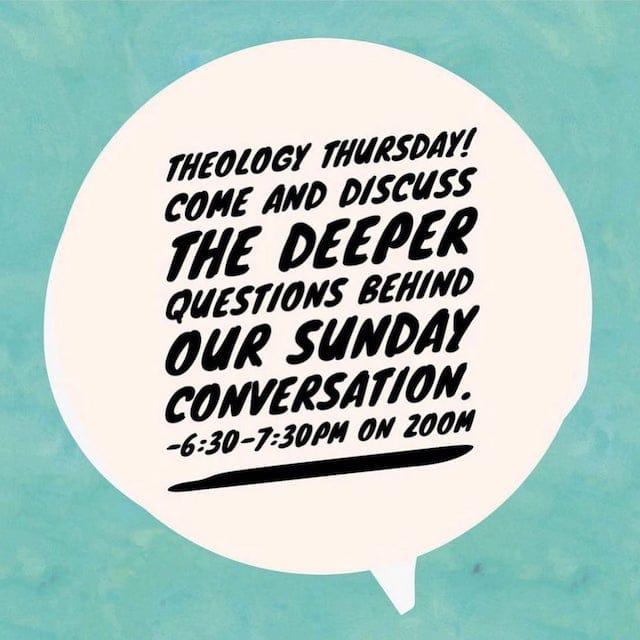Williamsburg Christian Church

With-Ness is Our Witness, Introduction (Part 2)
“Christians love one another. They never fail to help widows; they save orphans from those who would hurt them. If a man has something, he gives freely to the man who has nothing. If they see a stranger, Christians take him home and are happy, as though he were a real brother. They don't consider themselves brothers in the usual sense, but brothers instead through the Spirit of God. And if they hear that one of them is in jail, or persecuted for professing the name of their redeemer, they all give him what he needs. If it is possible, they bail him out. If one of them is poor and there isn't enough food to go around, they fast several days to give him the food he needs. This is really a new kind of person. There is something divine in them.” ~ Athenian philosopher, wrote to the Roman Emperor Hadrian (117-138 AD)
Locations & Times
Williamsburg Christian Church
200 John Tyler Ln, Williamsburg, VA 23185, USA
Sunday 9:00 AM
31 “When the Son of Man comes in his glory, and all the angels with him, then he will sit on his glorious throne. 32 All the nations will be gathered before him, and he will separate them one from another, just as a shepherd separates the sheep from the goats. 33 He will put the sheep on his right and the goats on the left. 34 Then the King will say to those on his right, ‘Come, you who are blessed by my Father; inherit the kingdom prepared for you from the foundation of the world.
35 “‘For I was hungry and you gave me something to eat; I was thirsty and you gave me something to drink; I was a stranger and you took me in; 36 I was naked and you clothed me; I was sick and you took care of me; I was in prison and you visited me.’
37 “Then the righteous will answer him, ‘Lord, when did we see you hungry and feed you, or thirsty and give you something to drink? 38 When did we see you a stranger and take you in, or without clothes and clothe you? 39 When did we see you sick, or in prison, and visit you?’
40 “And the King will answer them, ‘Truly I tell you, whatever you did for one of the least of these brothers and sisters of mine, you did to me.’ [the greek is an emphatic personal pronoun]
41 “Then he will also say to those on the left, ‘Depart from me, you who are cursed, into the eternal fire prepared for the devil and his angels! 42 For I was hungry and you gave me nothing to eat; I was thirsty and you gave me nothing to drink; 43 I was a stranger and you didn’t take me in; I was naked and you didn’t clothe me, sick and in prison and you didn’t take care of me.’
44 “Then they too will answer, ‘Lord, when did we see you hungry, or thirsty, or a stranger, or without clothes, or sick, or in prison, and not help you?’
45 “Then he will answer them, ‘Truly I tell you, whatever you did not do for one of the least of these, you did not do to me.’
46 “And they will go away into eternal punishment, but the righteous into eternal life.”
“Christians love one another. They never fail to help widows; they save orphans from those who would hurt them. If a man has something, he gives freely to the man who has nothing. If they see a stranger, Christians take him home and are happy, as though he were a real brother. They don't consider themselves brothers in the usual sense, but brothers instead through the Spirit of God. And if they hear that one of them is in jail, or persecuted for professing the name of their redeemer, they all give him what he needs. If it is possible, they bail him out. If one of them is poor and there isn't enough food to go around, they fast several days to give him the food he needs. This is really a new kind of person. There is something divine in them.”
We talked about how as Christians began to serve the hungry, poor and sick, outsiders began to take notice and the Christian gospel spread like a wild fire. As second century church African father Tertullian said:
“It is our care of the helpless, our practice of loving kindness that brands us in the eyes of our opponents.”
Finally, we reflected on this phrase from Matthew 25, which we do for weeks to come:
“Whatever you’ve done for the least of these you’ve done to me.” (25:40)
It is like the old Proverb from 19:17:
“Kindness to the poor is a loan to the Lord, and he will give a reward to the lender.”
‘Truly I tell you, whatever you did not do for one of the least of these, you did not do to me.’ (25:45)
It is like the old Proverb from 14:31:
“Whoever oppresses a poor man insults his Maker, but he who is generous to the needy honors him.”
What could motivate the Church to such a faithful witness of presence, a kind of with-ness with those suffering from unjust systems, unjust circumstances or an unjust society held captive to the reign of sin and death at work in the world?
As a result, the church really struggles to be a different kind of society in allegiance to Jesus because their culture is positioned strongly against Kingdom ethics, values, and virtues. They too know of the Jerusalem famine and persecution and were asked by Paul if they would contribute. Though they have their share of poor people within the church, on the whole they were a wealthy church and have much they can give. Yet, in their sinfulness as well as their frustration with Paul, they neglected to fully contribute to the needs of the christians in Jerusalem.
We want you to know, brothers and sisters, about the grace of God granted to the churches of Macedonia: 2 during a severe testing by oppression or pressure, their abundance of joy and their deep poverty overflowed into the wealth of their generosity. 3 I testify that, on their own, according to their ability and beyond their ability, 4 they begged us insistently for the privilege of sharing in the ministry to the saints, 5 and not just as we had hoped.
6 So we urged Titus that, just as he had begun, so he should also complete this grace to you. 7 Now as you excel in everything-in faith, in speech, in knowledge, in all diligence, and in your love for us-excel also in this grace. 8 I am not saying this as a command. Rather, by means of the diligence of others, I am testing the genuineness of your love. 9 For you know the grace of our Lord Jesus Christ: although He was rich, for your sake He became poor, so that by His poverty you might become rich. 10 Now I am giving an opinion on this because it is profitable for you, who a year ago began not only to do something but also to desire it. 11 But now finish the task as well, that just as there was eagerness to desire it, so there may also be a completion from what you have. 12 For if the eagerness is there, it is acceptable according to what one has, not according to what he does not have. 13 It is not that there may be relief for others and hardship for you, but it is a question of equality—14 at the present time your surplus is available for their need, so that their abundance may also become available for your need, that there may be equality. 15 As it has been written: The person who gathered much did not have too much, and the person who gathered little did not have too little.
"I am not saying this as a command. Rather, by means of the diligence of others, I am testing the genuineness of your love."
And to what does he remind them? The poverty of Christ and how Christ’s poverty becomes their wealth. Paul says in verse 9:
"For you know the grace of our Lord Jesus Christ: although He was rich, for your sake He became poor, so that by His poverty you might become rich."
Giving to God: Four Ways
Online via Bank Routing Number // Text by Phone to 844-221-3092 // PayPal Giving // Bill Pay Online with Your Bank // Mail to 200 John Tyler Lane, Williamsburg VA 23185 <br>
http://williamsburgchristianchurch.org/giving



Saturday, August 13 from 9am-5pm! Save the date! We will walk Colonial Williamsburg and reflect on our nation's history through the story of Christ as King.
